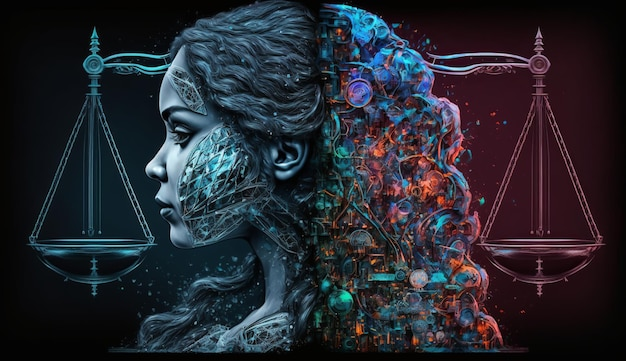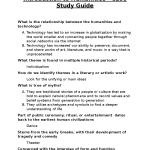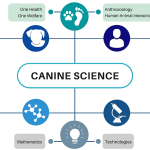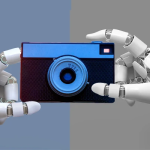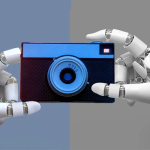AI and social justice are deeply interconnected themes that shape discussions about the future of technology and human rights. As noted by scholars like Ruha Benjamin, the impact of artificial intelligence on marginalized communities raises critical ethical questions regarding its role in promoting equality. Rather than accept a technological dystopia, Benjamin urges us to envision a future where social justice and technology coalesce for the greater good. However, she cautions against the false narratives pushed by tech elites that often serve their own interests. By critically analyzing AI through the lens of ethical AI practices, we can advocate for systems that genuinely enhance human rights and support a just society.
The intersection of artificial intelligence and societal equity is crucial to understanding the landscape of emerging technologies. Concepts such as responsible innovation and fair digital practices are at the forefront of debates concerning the implications of advanced computational systems. Notably, discussions led by thought leaders emphasize the necessity of integrating comprehensive ethical considerations in tech development. It is vital to challenge the dominant paradigms that prioritize efficiency over equity, urging a shift towards solutions that respect and uphold human rights. Embracing frameworks that advocate for inclusivity within technological advancements ensures a more equitable digital age.
The Role of AI in Shaping Social Justice
AI technologies are increasingly being integrated into various sectors, and as Ruha Benjamin points out, these implementations often carry significant social implications. The progressive narrative surrounding artificial intelligence frequently masks the underlying biases that can exacerbate inequalities. For example, the use of AI in law enforcement and healthcare can lead to discriminatory outcomes against marginalized communities, echoing historical injustices. It is essential to critically assess how AI can be harnessed to promote social justice rather than perpetuate existing disparities.
A commitment to ethical AI must become a priority as we navigate the intersection of technology and human rights. Advocates for social justice, including Benjamin, emphasize the need for inclusive dialogues that address the ethical dimensions of AI deployment. By fostering collaboration between technologists, ethicists, and community representatives, we can create AI systems that are not only efficient but also equitable and just. This multifaceted approach requires dismantling the traditional tech-centric paradigms and incorporating diverse perspectives.
Ruha Benjamin’s Vision for the Future of AI and Society
Renowned sociologist Ruha Benjamin advocates for a profound shift in how we envision the future of AI. In her Tanner Lectures, she challenges the status quo by urging society to reimagine technological advancements in ways that prioritize collective wellbeing over individual gains. Benjamin’s critique of the tech industry’s narrative invites us to contemplate the implications of AI on societal structures. Her viewpoint resonates with the notion that these technologies should not solely serve those who are privileged, but rather uplift the marginalized populations often left behind.
The vision Benjamin articulates is one where creativity and imagination play a crucial role in shaping the future. She invites us to explore a world constructed on ideals of justice and equity, rather than surrendering to the deterministic views of technocrats. This call to action aligns with broader movements advocating for social justice and technology, emphasizing that we have the power to co-create a reality that values human dignity and community resilience. By re-evaluating what constitutes progress, we can strive toward a future where technological advancements reflect our shared human values.
Ethical AI: Bridging Technology and Humanity
As discussions around ethical AI gain momentum, it is crucial to explore how artificial intelligence can be designed to support human rights rather than undermine them. Ruha Benjamin argues that the reliance on algorithms to dictate societal norms often marginalizes the voices that need to be heard the most. It is imperative that the development of AI incorporates ethical frameworks that prioritize humanity, integrating a diverse set of values that reflect our collective aspirations. This approach challenges the notion that technology is inherently neutral, highlighting the responsibilities of developers and stakeholders.
The challenge lies in creating systems that not only function well but also promote equity and justice. Initiatives that engage with community members and advocates for social justice will be vital in establishing standards for ethical AI. By leveraging insights from history, culture, and sociology, we can mitigate the risks associated with algorithmic decision-making, thus ensuring that future AI technologies align with principles of equity and respect. Building an accountable AI ecosystem will require sustained collaboration among technologists, ethicists, and affected communities.
Dismantling Barriers to Creative Thinking in AI Development
In her lectures, Benjamin underscores the importance of creativity and imagination in the discourse surrounding AI and technology. By emphasizing the need to dismantle mental barriers, she calls for a critical reassessment of the values that underpin current technological practices. This shift towards creative thinking enables us to envision frameworks that transcend the limitations of traditional models, fostering innovation that is both just and inclusive. Art and humanities can play a pivotal role in cultivating this creativity, allowing for richer narratives that connect human experiences to technological advancement.
Benjamin’s vision emphasizes that the future of AI should be grounded in diverse modes of understanding, incorporating historical and cultural narratives that inform our approach to technology. This requires an openness to exploring the intersections of art and science, thereby enriching the dialogue around AI’s potential. By elevating voices from various disciplines and communities, we can foster an environment that encourages bold ideas and revolutionary concepts, paving the way for transformative practices that enhance our collective future.
The Intersection of Arts, Technology, and Social Justice
The integration of arts and technology poses a compelling opportunity for social innovation, a point highlighted by Ruha Benjamin in her call for reimagining the role of creativity in shaping AI futures. By leveraging artistic expression and critical inquiry, we have the capacity to address complex social issues and envision equitable solutions. The arts can illuminate the lived experiences of marginalized groups, serving as a powerful medium for critique and advocacy in the realm of technology. This intersection opens up avenues for artists and technologists to collaborate in ways that prioritize social impact.
Arts and culture are essential in fostering a more nuanced understanding of the implications of AI. With the ability to articulate diverse narratives, the arts can challenge prevailing tech-centric ideologies and foster empathy among stakeholders. Workshops that integrate creative practices with technological development can inspire new forms of engagement, reminding us that technology should enhance human connection rather than diminish it. By engaging with the arts, we can cultivate a more just and inclusive technological landscape that aligns with the values of social justice.
Human Rights and the Future of AI Implementation
As artificial intelligence systems become more entrenched in societal processes, the safeguarding of human rights emerges as a central concern in the discourse surrounding AI. Leaders like Ruha Benjamin emphasize that without deliberate consideration of these rights, technological advancements could perpetuate systemic inequalities. The disproportionate impact of AI on marginalized populations necessitates a vigilant approach to implementation that actively considers the ethical ramifications of such technologies. Engaging with human rights frameworks allows us to create guidelines that ensure equitable access and treatment for all individuals.
Effective governance of AI technologies must prioritize accountability and transparency in order to protect human rights. By advocating for the inclusion of diverse voices in the development process, we can better align AI systems with core principles of dignity and justice. Furthermore, collaboration with human rights organizations can help to uphold ethical standards and safeguards, ensuring that the deployment of AI enhances social good without compromising individual freedoms. The future of AI lies in our ability to balance innovation with the imperative of respecting and promoting human rights.
Imagination as a Tool for Future Technologies
Ruha Benjamin’s vision invites us to utilize our imagination as a vital tool in shaping future technologies, particularly in the context of AI. By rethinking the established norms that often define technological advancement, we can envision systems that operate beyond the confines of profit and efficiency. Benjamin advocates for a radical reimagining of societal structures that technology is meant to serve, pushing against the notion that the current pathways are the only viable options. This imaginative process empowers stakeholders to reconsider the potential roles of technology in fostering a just society.
The call to action is not merely to critique existing systems but to engage actively in the co-creation of alternatives that challenge the status quo. Imagination can spark innovation in ways that are both transformative and equitable, encouraging more holistic views of progress. By involving a broader spectrum of voices in this imaginative process—including artists, thinkers, and everyday citizens—we can cultivate a more inclusive narrative around the future of technology. Embracing this dynamic form of inquiry opens up exciting possibilities for building a world that prioritizes human and community welfare in its technological pursuits.
Building Inclusive Futures with AI
To envision inclusive futures with AI, it is imperative that the development processes incorporate the voices and experiences of those who are most affected by these technologies. Ruha Benjamin emphasizes the importance of creating spaces for dialogue among diverse stakeholders, helping to ensure that the perspectives of marginalized communities are integrated into the design of AI systems. This participatory approach not only enriches the development process but also mitigates the risk of creating technologies that reinforce existing power dynamics.
Building inclusive futures involves recognizing the responsibilities of technologists towards societal well-being. By prioritizing equity and solidarity in AI initiatives, developers can align their work with broader social justice movements. Engaging with community members throughout the design and implementation phases fosters accountability and encourages the creation of AI solutions that genuinely address community needs. As we look to the future, the collaboration between technology and social justice becomes increasingly vital in framing a more equitable and just landscape.
Frequently Asked Questions
How does AI impact social justice according to Ruha Benjamin?
Ruha Benjamin highlights that AI technologies can exacerbate social injustices rather than alleviate them. For example, facial recognition software has been linked to wrongful arrests, disproportionately affecting marginalized groups. She argues that ethical AI should prioritize human rights and technology, ensuring that the design and implementation of AI systems consider social and historical contexts.
What are the ethical implications of AI in the realm of social justice?
The ethical implications of AI in social justice revolve around the potential for algorithms to perpetuate existing biases and inequalities. Ruha Benjamin emphasizes that AI should not be viewed as a morally neutral decision-making tool. Instead, a critical examination is needed to ensure that AI contributes positively to societal well-being and human rights.
In what ways can we reimagine the relationship between AI and social justice?
To reimagine the relationship between AI and social justice, Ruha Benjamin encourages creativity and imagination. She calls for a shift in perspective that critiques the current technologies and envisions alternatives focused on community needs, such as affordable housing and accessible public transport, rather than profit-driven innovations.
What role do tech elites play in shaping AI for social justice?
Tech elites often shape the narrative around AI’s future, presenting their visions as benevolent. However, Ruha Benjamin argues that we cannot rely on their motivations, as many prioritize self-interest. A more inclusive approach is needed, incorporating diverse voices to ensure AI aligns with the collective good and promotes social justice.
How can we ensure that AI development promotes human rights and technology?
Ensuring that AI development promotes human rights requires the inclusion of diverse knowledge in the conversation. Ruha Benjamin advocates for interdisciplinary approaches that combine technical expertise with insights from the arts and humanities, fostering a holistic understanding of social issues that can lead to ethical AI solutions.
What is the significance of Ruha Benjamin’s perspective on AI and the future of society?
Ruha Benjamin’s perspective is significant as it challenges prevailing narratives about AI as an unequivocal force for good. By urging a critical examination of AI’s impact on social justice, she encourages society to envision a future that prioritizes human rights, inclusivity, and creative solutions to systemic issues.
How does the conversation about AI and social justice relate to broader societal issues?
The conversation about AI and social justice is deeply intertwined with broader societal issues such as inequality, oppression, and human rights. Ruha Benjamin stresses that advancements in technology should be evaluated through the lens of their impact on marginalized communities, ensuring that progress does not come at the expense of justice.
| Key Points | Explanation |
|---|---|
| AI and Social Justice | Ruha Benjamin argues that AI often perpetuates social injustice rather than solving it. |
| Distrust of Tech Elites | Benjamin emphasizes the need to question the motivations of billionaires pushing AI solutions. |
| Critique of AI Efficiency | AI technologies may create more oppression rather than improving efficiency, as seen in facial recognition and healthcare triage. |
| Historical Context | The reliance on algorithms in decision-making can echo the harmful impacts of the eugenics movement. |
| Need for Inclusive Dialogue | Benjamin insists that discussions around technology must include voices from diverse backgrounds. |
| Creativity Over Criticism | A call for reimagining the use of technology and societal structures beyond present confines. |
Summary
AI and social justice have become pivotal themes in contemporary discourse, especially as scholars like Ruha Benjamin highlight the inherent risks and biases of AI technologies. Benjamin urges us to scrutinize the motives behind prevalent AI narratives promoted by tech elites and reminds us that true progress must encompass creativity, inclusivity, and a moral foundation. By reassessing our priorities and adopting imaginative approaches, we can envision a future where technology serves the greater good rather than perpetuating existing inequalities.
